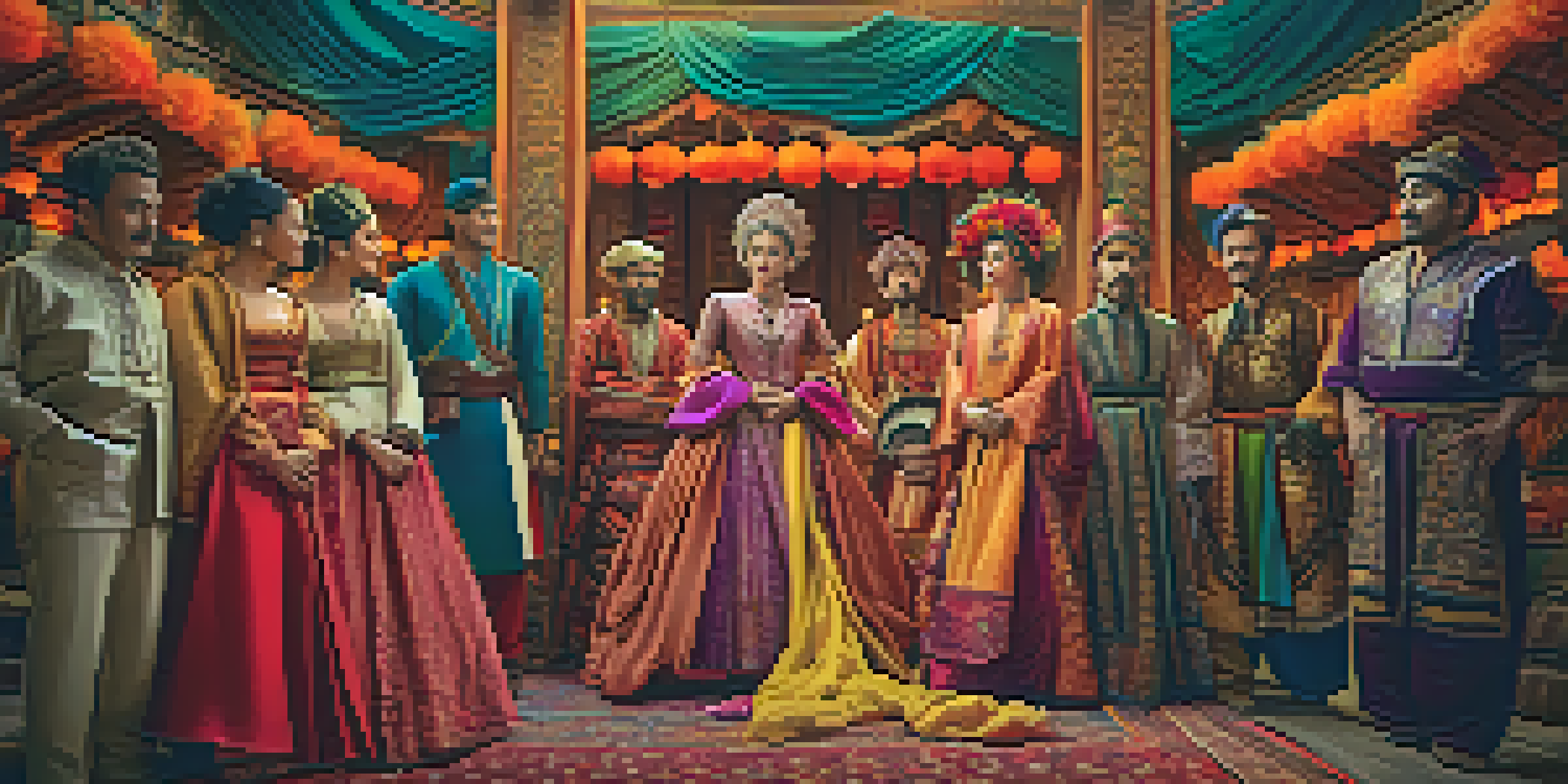Representation in Global Cinema: A Globalized Perspective

Understanding Representation in Cinema
Representation in cinema refers to how different groups are portrayed on screen, including race, gender, and culture. It plays a crucial role in shaping societal perceptions and attitudes. When diverse characters are authentically presented, they contribute to a richer narrative and foster empathy among audiences.
The Impact of Globalization on Cinema
Globalization has transformed the film industry, allowing stories from various cultures to reach wider audiences. This exchange enriches global cinema by incorporating unique perspectives and narratives. However, it also raises concerns about the homogenization of culture, where dominant voices overshadow local stories.
Representation Shapes Perceptions
Authentic representation in cinema influences societal attitudes and fosters empathy by showcasing diverse characters and narratives.
Diverse Narratives: Why They Matter
Diverse narratives are essential for a well-rounded cinematic experience, reflecting the multiplicity of human experiences. When films showcase varied backgrounds and stories, they challenge stereotypes and broaden understanding. This not only benefits marginalized communities but also enhances the viewing experience for all audiences.
Case Studies: Successful Representation in Film
Films like 'Black Panther' and 'Parasite' exemplify effective representation, showcasing narratives that resonate with audiences worldwide. 'Black Panther' celebrated African culture while breaking box office records, and 'Parasite' highlighted class struggles with a uniquely Korean twist. These films demonstrate that diverse storytelling can achieve both critical acclaim and commercial success.
Globalization Enriches Film Diversity
Globalization allows for a broader exchange of cultural stories, enhancing the richness of global cinema while also posing risks of cultural homogenization.
Challenges to Authentic Representation
Despite progress, challenges remain in achieving authentic representation in cinema. Often, decision-makers in the industry do not reflect the diversity of the stories being told, leading to misrepresentation. Authenticity requires not just diverse casts but also diverse creative teams behind the scenes.
The Role of Streaming Platforms in Representation
Streaming platforms like Netflix and Amazon Prime have democratized access to global cinema, allowing underrepresented voices to shine. These platforms often prioritize diverse content, providing a stage for stories that may have been overlooked in traditional cinema. However, the challenge remains to maintain quality and authenticity amidst this influx of content.
Streaming Platforms Amplify Voices
Streaming services have democratized access to diverse stories, enabling underrepresented voices to reach wider audiences, though challenges in maintaining quality persist.
Audience Reception and Expectations
As audiences become more aware of representation issues, their expectations change. Viewers increasingly demand authenticity and diversity, which influences what studios choose to produce. This shift can lead to better representation in films, as filmmakers strive to meet the evolving tastes of global audiences.
Looking Ahead: The Future of Representation
The future of representation in global cinema holds great potential for growth and change. As more filmmakers from diverse backgrounds enter the industry, we can expect an even broader array of stories. The ongoing dialogue about representation will continue to shape the cinematic landscape, making it more inclusive and reflective of our global society.